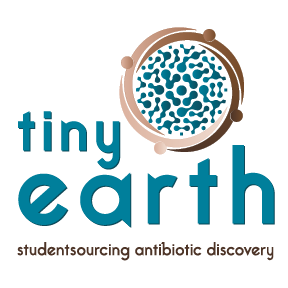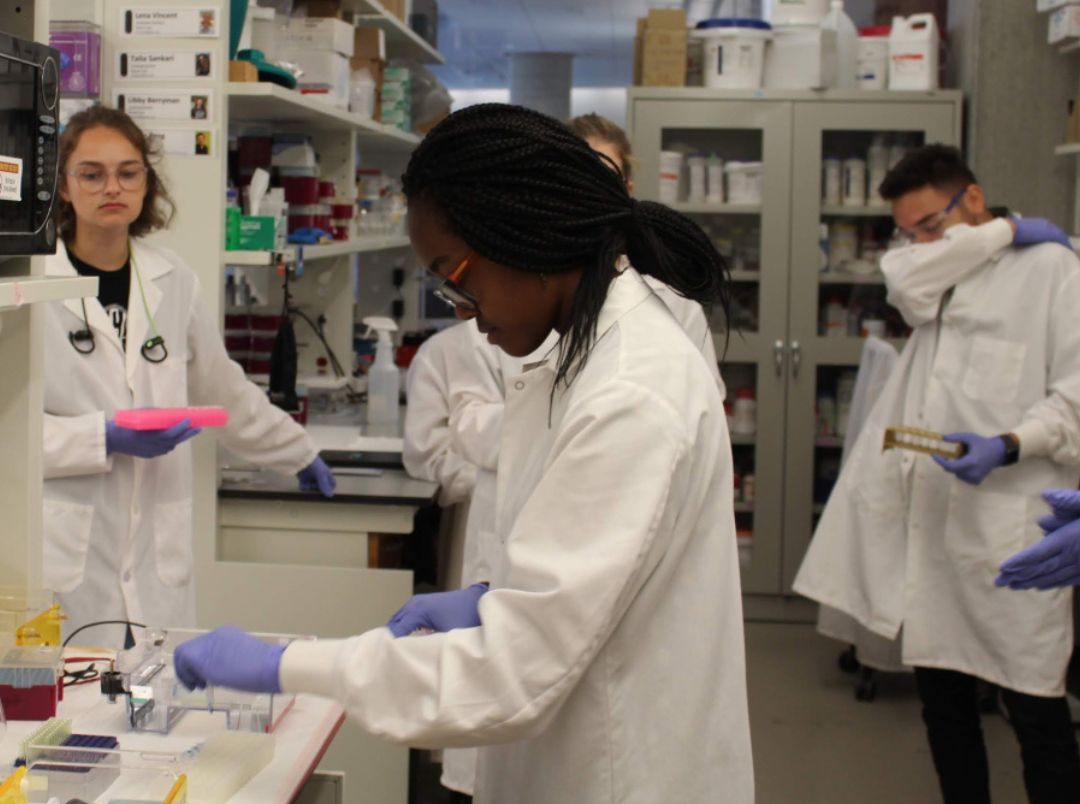Greetings from the Tiny Earth Chemistry Hub (TECH) at University of Wisconsin-Madison!
What is TECH?
The Tiny Earth Chemistry Hub (TECH) was established in 2018 and is a main component of the “Science and Discovery” core of Tiny Earth. TECH’s research reaches beyond what can typically be accomplished in a one-semester Tiny Earth course and moves our network closer to discovering the next novel antibiotic.
Our team of microbiologists, computational biologists, and chemists – from postdocs to undergrads – study potential antibiotic-producing bacteria that students in Tiny Earth classrooms all over the United States isolate (at this time we cannot accept isolates from outside the US – but we hope to someday!). We are so grateful to the students and instructors who share their promising strains with us, as our strain collection is one of TECH’s greatest assets. The pool of candidate strains shrinks during each stage of the discovery pipeline, but with a large, diverse collection, we greatly increase our chances of identifying a new compound.
How does TECH work?
The TECH team prioritizes isolates based on (1) activity against ESKAPE safe-relatives; (2) genetic information; and (3) metabolomic profiles. Our team identifies isolates based on their 16S rRNA gene, then selects for complete genome sequencing, and later, chemical elucidation. During each stage of the process, isolates and chemical extracts are screened against ESKAPE strains.
2021 Recap: We’ve grown!
Over the past year, we have:
- Grown our isolate collection by over 28% in 2021, and we now have over 3,100 isolates.
- Added three new schools that contributed to TECH’s collection in the past year, including Augustana College, Waukee APEX, and Kentucky Wesleyan University, and several institutions have continued sharing strains.
- Worked on troubleshooting genomic extractions and now have a smooth pipeline to share hundreds of genomes with the Joint Genome Institute (JGI). Currently 14 genomes are tagged as priority based on biosynthetic gene clusters of interest. These isolates come from multiple different soil samples across three U.S. states.
- Installed a mass spectrometer which has boosted efficiency since we were previously sharing mass spec time with other labs.
- Expanded our research on antibiotic induction. By treating isolates with different conditions, such as adding known antibiotics to media or co-culturing with pathogens, we have seen promising results.
What’s on the 2022 Docket?
As we continue to refine TECH’s discovery pipeline, we will also increase throughput and hope to share more results with the Tiny Earth network and larger community through Tiny Earth Database updates and events like the Symposium.
Finally, we are thrilled to introduce the Tiny Earth Summer Research Course (TESRC) in 2022, where students from two-year and tribal colleges will spend 10 weeks studying antibiotic production of isolates in the TECH collection.
Want to connect with TECH?
Students: Talk to your instructors!
Instructors: Check out these resources on the TEPIs-only website (NetID required; Use the “Log in with NetID” Button).
Community: Email Tiny Earth! tinyearth@wid.wisc.edu
–Martel DenHartog (she/her), Tiny Earth Research Specialist
Last updated: January 4, 2022


